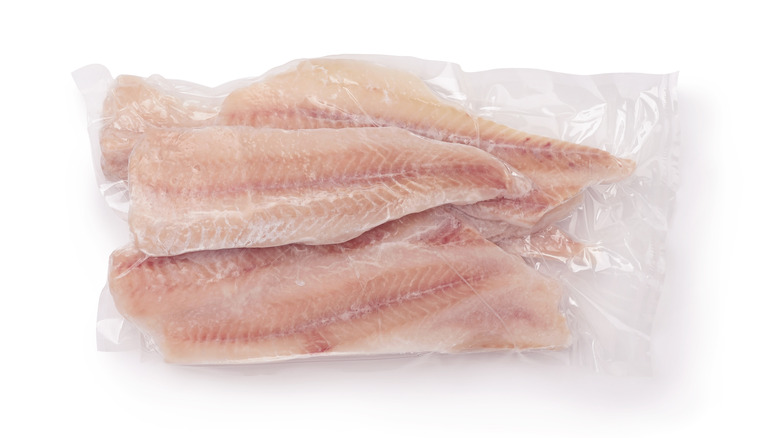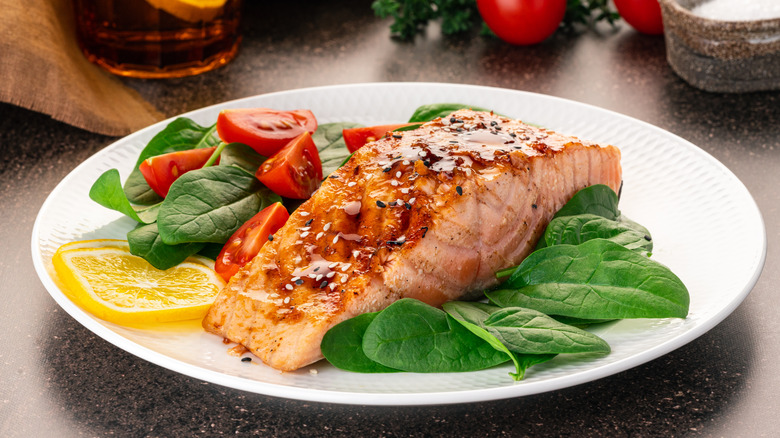Is Your Frozen Fish Mushy? Here's Why
Unless you enjoy eating fish often, you probably wouldn't know that fish comes in different textures, from firm to tender and medium-firm to delicate, per Choose Your Fish. You also probably wouldn't know that different fish have different tastes. Some are mild or sweet, while others can be medium, full, or rich. But for as many tastes as fish have, the one texture that doesn't taste good to any human palate is "mushy." Fish turns mushy when a previously frozen fish cooks up and delivers flesh that resembles the texture of a roughly mashed potato.
Fish usually turn mushy after being taken out of the freezer to defrost before cooking. Per The Spruce Eats, it can happen when your previously frozen fish is dunked in water without any packaging and takes in moisture. It can also turn mushy if it is subjected to acidic ingredients like vinegar or lemon juice for more than half an hour since, as Phil Lempert of Today points out, the acid will break down fish's protein structures.
Fish does not get mushy if it is handled properly
To avoid mushy fish, Today recommends that you thaw any frozen fish out overnight in the fridge and avoid thawing fish on the countertop to keep bacteria from growing. Bringing fish to cooking temperature in milk will also help eliminate the "frozen" taste.
To keep your fish from changing textures as you are cooking it, Taste of Home suggests using paper towels to make sure the fish is dry before you cook it. Don't be shy about cooking fish at higher, hotter temperatures. Refrain from flipping fish too often so your fillet doesn't break apart. It is also important to make sure that you pick the right texture of fish to complement your recipe.
This is where a fishmonger can help since a good one can offer suggestions and recommendations involving which types of fish are in season, where a certain type of fish might have come from, and what recipes work best with certain types of fish, per Forever Oceans. Using a delicate fish to prepare a recipe meant for its firmer fleshed relatives is one way of ensuring that you're not going to get the meal you were hoping for. Because fish doesn't have much fat and connective tissue, it becomes more fragile as it cooks, leaving you with a meal that isn't able to reach its full potential.

